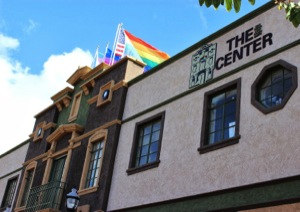
Don’t Ask Don’t Tell and Prop. 8 are relegated to their rightful places in the dustbin of history; it seems like pretty much everyone who wants to be open about their sexual orientation is; and it appears to many that HIV is a minor concern. So what’s there left for an LGBT Center to do? Isn’t it kind of superfluous in a world that is so much more accommodating of homosexuals than it was in 1971 when “The Center” was nothing more than an answering machine that was literally in the closet?
Even as gay acceptance reaches new heights, the soon-to-be Speaker of the California State Assembly, Toni Atkins said, “The Center is still extremely relevant and the fact that they served more than 55,000 people last year and held numerous community events is a testament to that fact.”
San Diego has the second-oldest LGBT center in the country, and one of the five largest. Psychologist Dr. Delores Jacobs has been the CEO since 2001 and says, “One of our greatest accomplishments is that, even after 40 years, we are still able to honor the original mission and vision of The Center’s founders – to build and to serve our LGBT community and to fight for our full equality.”
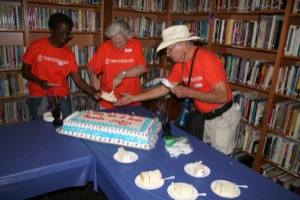
Rather than seeing less need for The Center, the demand keeps increasing. It gets thousands of phone calls and drop-in visitors a month. According to front desk manager, Aaron Heier, “The most common questions we get on the phone are, ‘What’s going on at The Center today,’ followed closely by, ‘Do you have testing’ and ‘Is the Cyber Center open?’ People call daily with a myriad of questions, seeking information relating to HIV/STDs, marriage equality, community events, housing assistance, taxes and counseling/therapy.” Many in the community don’t know that Pride or the Gay Men’s Chorus, for instance, are not run by The Center so call for information on those and a host of other gay-related questions. The front desk volunteers try to keep informed as to happenings in the greater LGBT arena so they can answer simple questions, and if the question is more complicated, they have a long list of phone numbers to whom to refer people – whether in the LGBT community or to governmental agencies or other non-profits. They try to be a clearing house for all relevant information.
The Center keeps expanding its reach. Bill Kelly, who was recently appointed to the City of San Diego’s Senior Affairs Advisory Board, was the person most responsible for convincing The Center to take action on issues of concern to the older members of the LGBT community sooner than they planned. “Without The Center, none of the senior work would have happened,” he said. “The initial meetings were held at The Center. Staff, including Delores Jacobs, sat in to get things moving. It was tough to get things going during the recession. The Youth Housing project took a lot of resources and time, but they saw the need for the senior project.” He added that as the needs of the community changes, The Center adapts. “The Center has done our community a tremendous amount of good, and they need to keep moving along with the changing times.”
Now there is a full-time staff member, LaRue Fields, to help seniors with a wide variety of services and The Center is one of the collaborating forces behind the Community Housing Works plans to build LGBT-friendly housing in North Park. The housing project, like many others on which Kelly and The Center are working, is an effort involving several organizations.
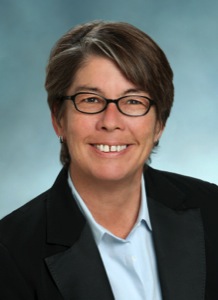
Another example of expanding services is more inclusion of the trans community. For decades, the T of LGBT was ignored by many, but now staff member Connor Maddox is transgender services coordinator. The 11th Annual Transgender Day of Empowerment April 4 drew a standing-room-only crowd of about 300 people to The Center’s large auditorium.
Ben Cartwright, who was recently hired as director of community outreach shares Kelly’s concerns that The Center might not be reaching everyone it could and should. He will be manning a booth at a street fair in Santee to expand awareness of The Center beyond Hillcrest and to the wider LGBT community that may not know much about it. Disseminating information is a big part of what The Center does. Cartwright said, “The County asked if we could help them reach out to gay veterans.” The County offers a host of veterans services, but many people are unaware of them, so he said, “There will be a program in September to tell them what is available.” Such diverse outreach also meant that The Center was an official enrollment site for Covered California and provided information for people seeking health care.
The staff and many in the community agree that The Center’s problem isn’t a lack of things to do, but a lack of resources and space to accommodate all who would like to avail themselves.
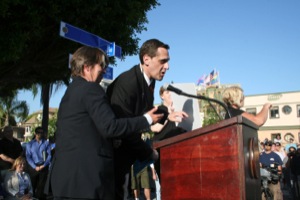
Brandon Shawn Tate, director of development said, “The Center has three or four meeting rooms, plus the library and auditorium and all are available to anyone in the community to rent. We also have lots of programs that take on their own name, like Latino Services and Family Matters. They take on their own name and branding, but they are programs of The Center.” So it’s not surprising that many people don’t know where The Center begins and ends.
Tate boasts about the youth housing program as one The Center’s success stories. He says that the young people who have been provided with housing stay in school or are keeping jobs, and that of those who left the program last year, over 95 percent still have stable housing. “These results are far above the outcomes reported by similar housing programs. But we can only serve 23 at a time. There is so much more need.”
Twelve mental health staff members work off site. There is an annual budget of over $4 million, 48 total paid staff, over 800 volunteers and over 40,000 recipients on the emailing list. It is a large operation, but a vital one because as Kelly says, “We feel like it’s our gay city hall. There’s a feeling like that in the community.”
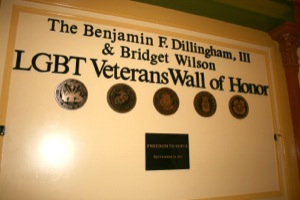
Jacobs said, “People tend to know about the services and programs that speak to them or are of the most interest to them personally. We offer a full range of behavioral health services, HIV services, discussion groups, targeted programs for LGBT parents and their families, our LGBT seniors, youth, our transgender community, our Latino community. We offer community events and activities, as well as critically-needed services.” There is so much going on, she recommends, “For those who are interested in learning more, they should check out our Web site at thecentersd.org or sign up for our weekly e-newsletter so they can always know what’s coming next.”
Recent interim mayor and once again City Council President Todd Gloria, said, “The opportunity to serve on The Center’s board of directors was a tremendous opportunity for me to gain an even deeper understanding of non-profit organizations, how to run effective meetings, and to view different leadership styles and further develop my own leadership skills. I remain an enthusiastic supporter of The Center and am deeply proud of the work it does every day to serve our community, and thankful to all those who make it possible.”
Freelance writer Walter G. Meyer is the author of the award-winning gay novel, Rounding Third.











